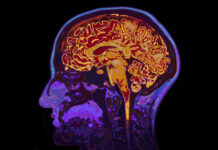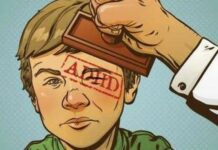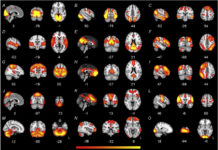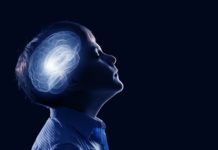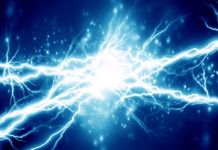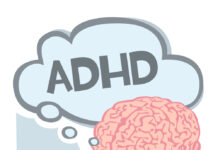Lancet Psychiatry Needs to Retract the ADHD-Enigma Study
Lancet Psychiatry, a UK-based medical journal, recently published a study that concluded brain scans showed that individuals diagnosed with ADHD had smaller brains. That conclusion is belied by the study data. The journal needs to retract this study.
UPDATE: Lancet Psychiatry (online) has published letters critical of the study, and the authors' response, and a correction.
Study Finds ADHD Drugs Alter Developing Brain
A new study, published in the JAMA Psychiatry, investigates the effect of stimulant ‘ADHD’ drugs on the brains of children and young adults. The...
Why the Rise of Mental Illness? Pathologizing Normal, Adverse Drug Effects, and a Peculiar...
In just two decades, pointing out the pseudoscience of the DSM has gone from being an “extremist slur of radical anti-psychiatrists” to a mainstream proposition from the former chairs of both the DSM-3 and DSM-4 taskforces and the director of NIMH. In addition to the pathologizing of normal behaviors, another explanation for the epidemic — the adverse effects of psychiatric medications — is also evolving from radical to mainstream, thanks primarily to the efforts of Robert Whitaker and his book Anatomy of an Epidemic. While diagnostic expansionism and Big Pharma certainly deserve a large share of the blame for this epidemic, there is another reason.
ADHD Diagnosis Based on “Illogical Rhetoric,” Analysis Claims
In a philosophically rigorous article, Spanish researcher Marino Pérez-Álvarez examines the logic of attention-deficit hyperactivity disorder (ADHD).
My Diagnosis of ADHD and the Downfall That Followed
A simple, one-time visit to an unfamiliar counselor resulted in my diagnosis of ADHD. That same visit started my avalanche of drug abuse. I was 19 years old when I was falsely diagnosed with ADHD, and it forever changed my life.
No, There is no Such Thing as ADHD
Somewhere along the line we have lost the understanding that kids come in all shapes and sizes. Some kids are active, some are quiet; some kids are dreamers, others are daring; some kids are dramatic, others are observers; some impulsive, others reserved; some leaders, others followers; some athletic, others thinkers. Where did we ever get the notion that kids should all be one way?
The Scientism of Attention Deficit Hyperactivity Disorder (ADHD)
Calling ADHD a diagnosis, i.e., something with the capacity to explain the behaviours that it describes, is like saying the headache is causing the pain in my head or the inattention is caused by inattention. Scientism has turned ADHD from a vague, difficult to pin down concept into a fact of culture masquerading as a fact of nature.
Duty to Warn – 14 Lies That Our Psychiatry Professors in Medical School Taught...
Revealing the false information provided about psychiatry should cause any thinking person, patient, thought-leader or politician to wonder: “how many otherwise normal or potentially curable people over the last half century of psych drug propaganda have actually been mis-labeled as mentally ill (and then mis-treated) and sent down the convoluted path of therapeutic misadventures – heading toward oblivion?”
Psychiatry’s 12-Step Program for Producing Heroin Addicts
I believe that today’s heroin addicts are a new breed — the seeds of their creation were sown back in 1990, when doctors’ lies about normal childhood immaturity being a genetic “brain illness” became accepted. Here are some statistics that support my argument that psychiatry is the root cause of our heroin epidemic.
3 Facts All Parents Should Know About ADHD Stimulant Drugs
Medicating children for a host of mental disorders has become very popular in some parts of the USA. More than 8 million kids from 6 months to 17 years of age are on pharmaceutical drugs in this wonderful country. We lead the world in drugging youth for behavioral, cognitive and attention issues. We are once again #1. But I would like to share with parents as well as adults working with children a few not so readily available facts related to medicating kids for behavior issues.
Renowned Harvard Psychologist Says ADHD is Largely a Fraud
From Curious Mind Magazine: Jerome Kagan, one of the most influential psychologists of the 20th century, believes that the diagnosis of ADHD is a mere...
Long-term Usage of ADHD Drugs Linked to Growth Suppression
Findings suggest that treatment not only fails to reduce the severity of “ADHD” symptoms in adulthood but is associated with decreased height.
Allen Frances and the “Overdiagnosing” of Children
What Dr. Frances calls "massive mislabeling" is not the assignment of psychiatry's spurious labels as such, but rather what he calls the overuse of these labels. This notion of conservative, careful and accurate diagnosis is a common theme in Dr. Frances's writing, but in fact, it's an empty exhortation, because the criteria are inherently vague and ill-defined.
I Want Change
Only two hours after we got home, Dan fearlessly told me of the suicide plan that he'd devised while in the hospital. He had all that time to think about it while nobody was listening. He'd lost his dignity, his identity and his place in society. He had lost the will to live.
No Brain Connectivity Differences Between Autism, ADHD, and “Typical Development”
Neuroscience researchers find no differences in brain connectivity between children with diagnoses of autism, ADHD, and those with no diagnoses.
Children with ‘ADHD’ Commonly Prescribed Antipsychotics
Despite little evidence for benefit, and substantial risk of harm, antipsychotics are commonly prescribed to children diagnosed with ADHD
FDA Approves Using Electricity All Night Long on Children’s Brains
The FDA just approved sales of an electrical device called the Monarch eTNS to be used on the brains of children diagnosed with so-called ADHD. The device “sends therapeutic signals to the parts of the brain thought to be involved in ADHD,” according to the FDA press release. “Therapeutic signals”? Really?
A Smashing Victory — And an Insidious New Threat
Afraid of facing me in court, the state gave up entirely and a young man was freed from involuntary ECT treatment. It was a total victory. Meanwhile, the Psychiatric Industrial Complex is finding more subtle ways to inflict electrical energy upon the brains of children labeled with ADHD.
Monarch eTNS Inspires “Stop the Psychiatric Abuse of Children!” (SPAC!)
The FDA approval of the Monarch eTNS device is the latest form of psychiatric-inspired child abuse. If not stopped, it will afflict millions of children in unimaginably damaging ways. It has inspired us to form Stop the Psychiatric Abuse of Children (SPAC!) a new international advocacy organization.
Lancet Psychiatry’s Controversial ADHD Study: Errors, Criticism, and Responses
Amid calls for a retraction, Lancet Psychiatry publishes articles criticizing the original finding and a response from the authors.
Micronutrients for ADHD Symptoms in Children
Over and over again, we have shown that additional nutrients positively affect behaviour and mental states. This research offers further evidence that children with ADHD, mood dysregulation and symptoms of aggression should be given the opportunity to try micronutrient treatment FIRST.
Towards a Ban on Psychiatrically Diagnosing and Drugging Children
Instead of hope and enthusiasm for their futures, too many children now grow up believing they are inherently defective, and controlled by bad genes and biochemical imbalances. They are shackled by the idea that they have ADHD and then subdued by the drugs that inevitably go along with the diagnosis. Unless something intervenes, many of them will go on to pass their days on Earth in a drug-impaired, demoralized state.
Researchers Argue that ‘ADHD’ Doesn’t Meet DSM Definition of a Disorder
New research questions whether the diagnosis of ADHD even meets the criteria for a disorder, as set out in the manuals used by the medical and psychiatric fields.
The Real Attention Deficit Disorder
The fact that we shame people for acting like they need attention (and for actually needing attention) is self-defeating and maddening, not to mention absurd. Living in a society that punishes people for having fundamental needs like attention is probably one of the reasons people have developed behaviors “just” to “get attention.”
ADHD: The Hoax Unravels
At the risk of stating the obvious, ADHD is not an illness. Rather, it is an unreliable and disempowering label for a loose collection of arbitrarily chosen and vaguely defined behaviors. ADHD has been avidly promoted as an illness by pharma-psychiatry for the purpose of selling stimulant drugs. In which endeavor, they have been phenomenally successful, but, as in other areas of psychiatry, the hoax is unraveling.

